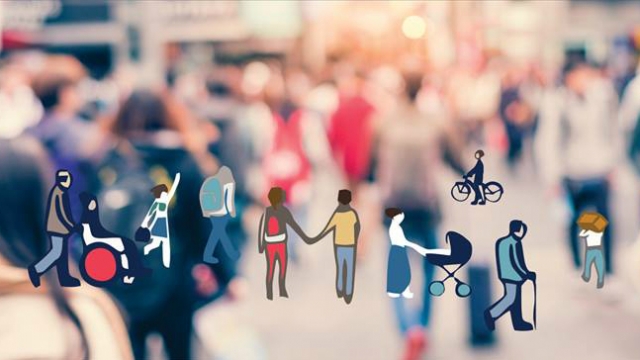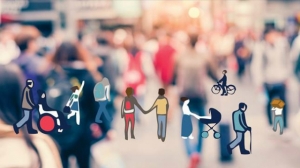Council of Europe Study on Hate and Discrimination in Georgia
PRESS RELEASE
International Day for Tolerance, the Council of Europe presented the findings of the study “Hate Crime, Hate Speech, and Discrimination in Georgia: Attitudes and Awareness”.
The study reflects data collected through a nationally representative survey, in-depth interviews and focus groups from June 2018 to September 2018. The study focuses on the awareness, understanding and appreciation of diversity in the Georgian society; the protection of minorities and vulnerable groups; occurrence of discrimination, hate crime and hate speech in the Georgian society and who it affects; Georgian legislation against discrimination, hate crime, and hate speech; existing redress mechanisms and their effectiveness; different actors’ work in this field.
The results of the study show that 56% of people think diversity is positive for the country. However, 36% of the people think diversity is negative, saying that it “threatens our culture and traditions”.
In general, attitudes are more positive towards people with disabilities than any other minority group. Attitudes towards religious minorities, migrants from countries outside Europe, and LGBT people are generally more negative.
One in three people think that hate crime is a problem in Georgia, while one in two think hate speech is. People think LGBT people are the most common victims of hate crime and hate speech. The next most common group was the Jehovah’s Witnesses, and migrants from outside Europe.
In general, majority perceptions of the issues that minorities face differ significantly from the perceptions that the minority groups themselves hold.
In general, people are moderately informed about the Georgian legislation against discrimination, hate crime, and hate speech. 23% of the population reported they were aware of the Law on the Elimination of All Forms of Discrimination. 23% of people think there are additional criminal penalties in Georgia for committing a crime that was motivated by the fact that the victim was a minority, while 41% think that there is no additional criminal penalty. When it comes to existing redress mechanisms, half of people are generally aware of the fact that they can turn to the police, the courts, and the Public Defender’s Office if they are the victim of hate crime or hate speech.
The results of the study will guide the Council of Europe’s awareness raising campaign for equality, non-discrimination and human rights to be conducted within the framework of the co-operation project ”Fight Against Discrimination, Hate Crimes and Hate Speech in Georgia”
The full report of the study “Hate Crime, Hate Speech, and Discrimination in Georgia: Attitudes and Awareness” is already available here.
The presentation gathered representatives of the Government, Parliament, embassies and civil society organisations.
This study was conducted by CRRC Georgia for the Co-operation Project “Fight against Discrimination, Hate Crimes and Hate Speech in Georgia”.
Source: Council of Europe












